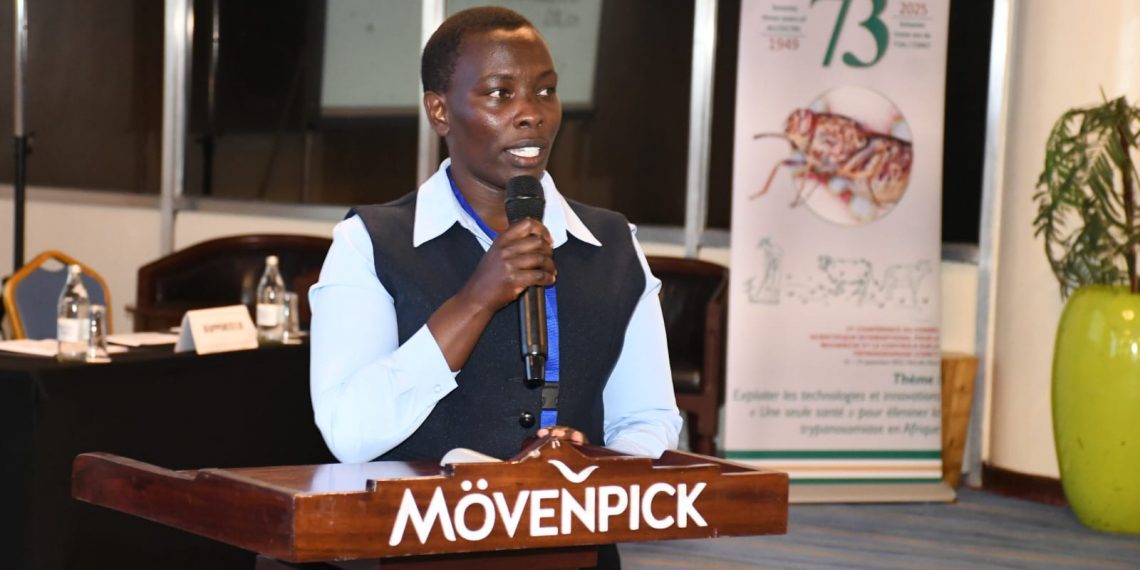The crucial battle against Animal African Trypanosomiasis (AAT) is facing severe sabotage due to the rampant misuse of trypanocidal drugs—essential antiprotozoal medications—across sub-Saharan Africa.
Experts caution that this pattern is critically fueling drug resistance, actively undermining all continental efforts to protect livestock.
Veterinary researcher Caren Kikwai, speaking at the 37th general conference of the International Scientific Council for Trypanosomiasis Research and Control (ISCTRC) in Nairobi, reviewed the crisis.
She pointed out that since no AAT vaccine is available and vector control covers less than 2percent of infested areas, these trypanocides remain the primary defense against the deadly tsetse fly-borne disease, Nagana.
“ with Government services are often out of reach and under-resourced, forcing a significant majority of rural farmers to self-diagnose and treat their own animals.”
Self-Medication Endangers Herds
Kikwai noted that the privatization of veterinary services and the easy accessibility of these drugs have facilitated widespread misuse.
The core problem, she explained, is rooted in poverty and a severe lack of access to veterinary professionals.
Studies cited by Kikwai reveal alarming practices such as a vast majority of farmers engage in self-administration 73percent in Kenya, 66percent in Uganda, and a staggering 90percent in Cameroon.
She observed that dangerous errors are common example a Tanzanian study showed 75percent of farmers injected drugs intravenously instead of the recommended intramuscular route.
She also pointed out studies revealing that Farmers often mix trypanocides with antibiotics, use single doses rather than full courses, and engage in chronic over-treating with reports from Ethiopia and Kenya showing up to seven treatments per year, far exceeding FAO guidelines.
Counterfeit Threat Accelerates Resistance
The situation is further complicated because farmers frequently source medicines from unauthorized street vendors, where counterfeit and substandard products are prevalent. A survey in northern Togo found that 40percent of sampled drugs from these sources contained lower than stated active ingredients.
Kikwai warned that these poor-quality products not only compromise treatment success but also relentlessly accelerate Trypanocidal Drug Resistance (TDR), which has now been confirmed in 17 African countries.
By forcing self-medication with compromised products, the system inadvertently worsens the disease and places entire herds at catastrophic risk.
Call for United Regulatory Action
The consensus among the 350 participants at the ISCTRC conference drawn from 30 AU Member States and international organizations is that immediate, coordinated action is vital.
Researchers are urgently calling for, stricter regulation of veterinary drugs and tighter supply chains, more robust farmer education on proper drug use.
And strict enforcement of national and regional regulations on the quality, supply, and use of these critical medicines.
They are also calling for a comprehensive multi-stakeholder approach to reverse these dangerous trends. Without a united effort Kikwai said, unchecked spread of drug resistance will continue to gravely threaten food security and livelihoods across the African continent.














